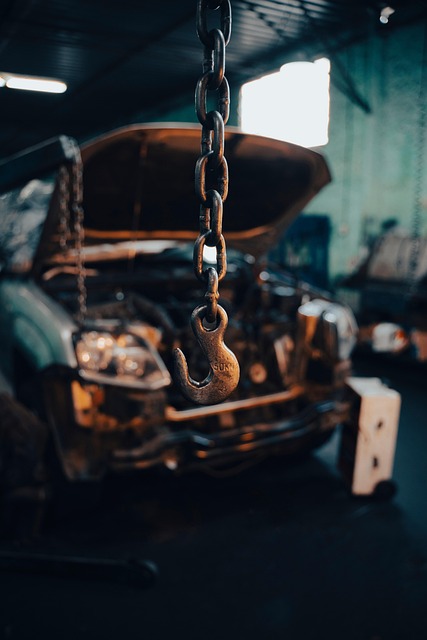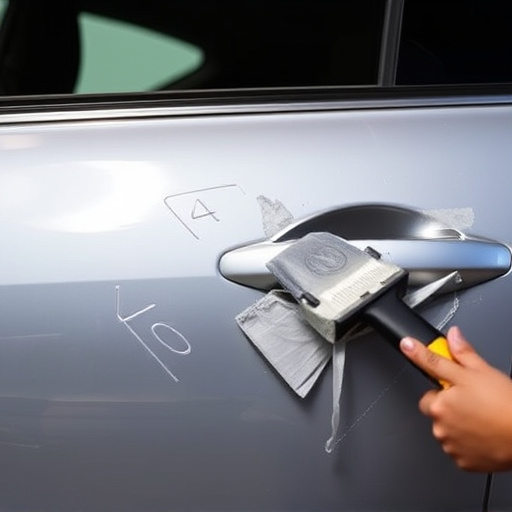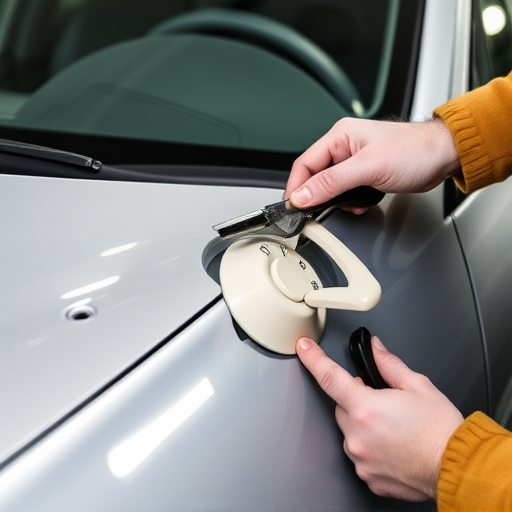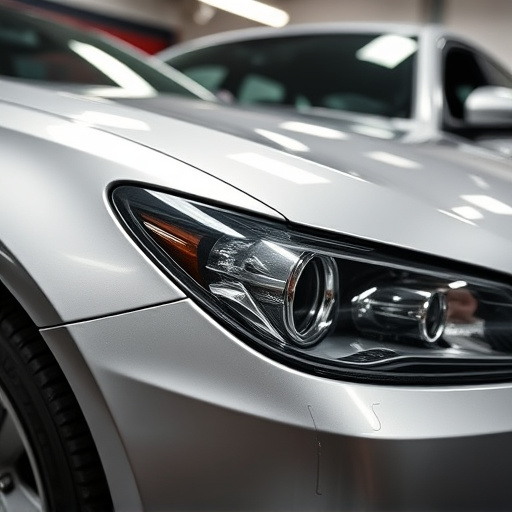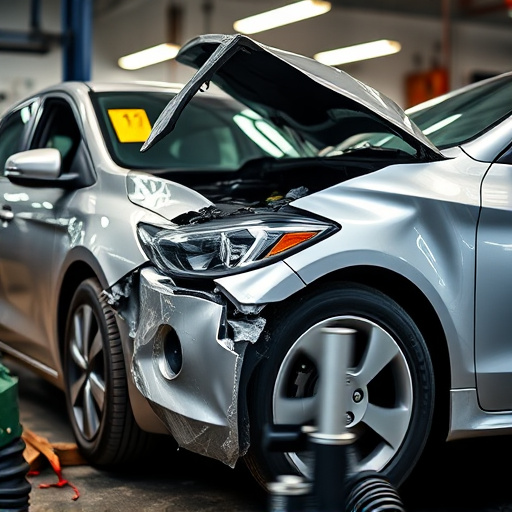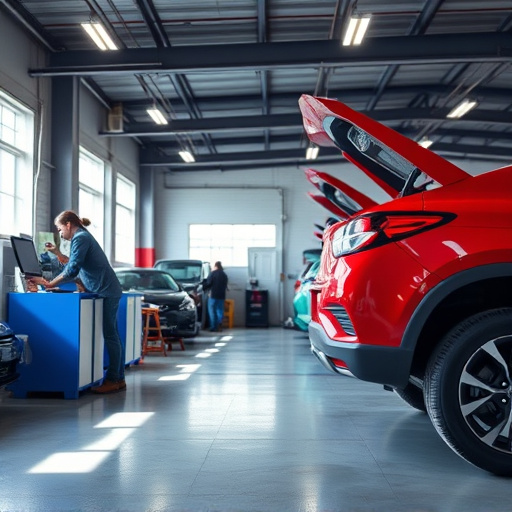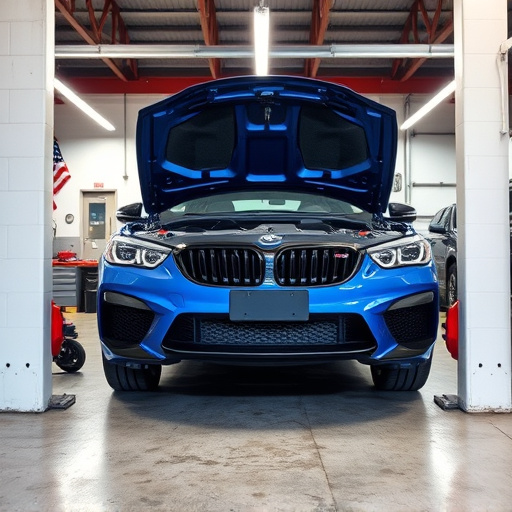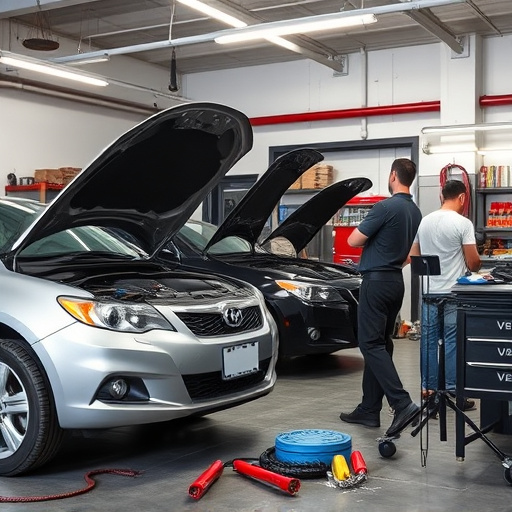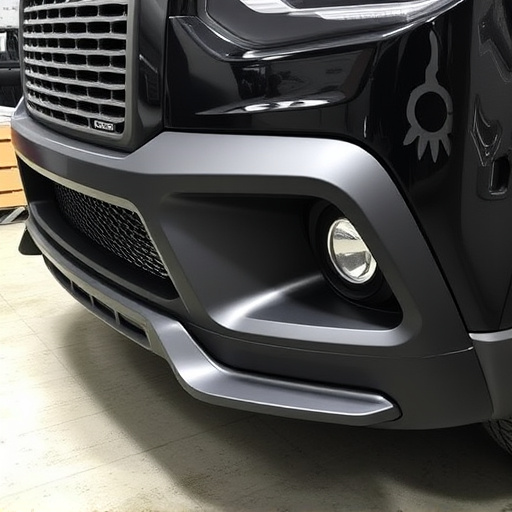By 2025, the automotive industry is poised for a significant transition towards electric vehicles (EVs), driving a critical need for advanced electric car body repair services. Traditional body shops must adapt by investing in specialized knowledge and tools to handle EV components like battery packs and high-voltage parts, while also mastering innovative techniques like paintless dent repair. This evolution ensures not only safety standards and minimal downtime for EV owners but also aligns with the industry's broader sustainability goals, as the demand for eco-friendly transportation continues to grow.
In 2025, as the automotive industry continues its rapid evolution towards sustainable mobility, electric car body repair remains a vital aspect of vehicle maintenance. While electric vehicles (EVs) present unique challenges due to their advanced technology and intricate designs, skilled technicians are essential for their upkeep. This article explores the evolving landscape of automotive repair, delves into specific considerations for electric car body repair in the coming years, and discusses the future of sustainable mobility through innovative practices in this critical field.
- The Evolving Landscape of Automotive Repair: Electric Cars and Beyond
- Un addressing Unique Challenges: Electric Car Body Repair in 2025
- The Future of Sustainable Mobility: Continuity and Innovation in Electric Car Body Repair
The Evolving Landscape of Automotive Repair: Electric Cars and Beyond
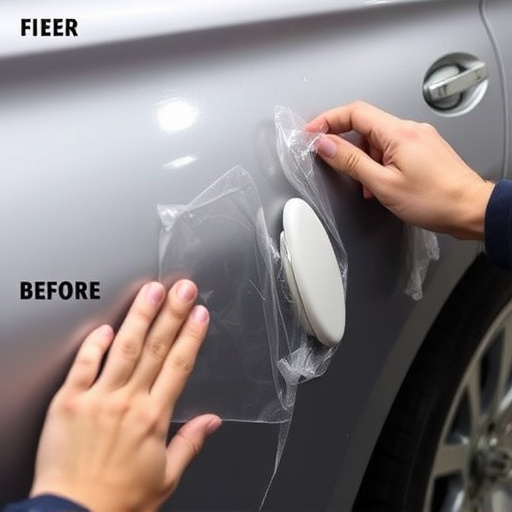
The automotive repair industry is undergoing a significant transformation as we transition into an era dominated by electric vehicles (EVs). While the shift to electrification brings about exciting advancements in vehicle technology, it also presents unique challenges for traditional automotive body shops. Electric car body repair is no longer a niche concern but has become a crucial aspect of maintaining and repairing these innovative vehicles.
As EV models continue to gain popularity, the demand for specialized services will only increase. This evolution requires automotive body shops to adapt and invest in new skills and equipment tailored to electric vehicle repairs. From precise fender repair techniques to understanding the intricate systems that control bumper damage, every aspect of body repair needs to evolve. Embracing these changes ensures that workshops remain competitive and can cater to a diverse range of customers, including those with cutting-edge electric cars.
Un addressing Unique Challenges: Electric Car Body Repair in 2025
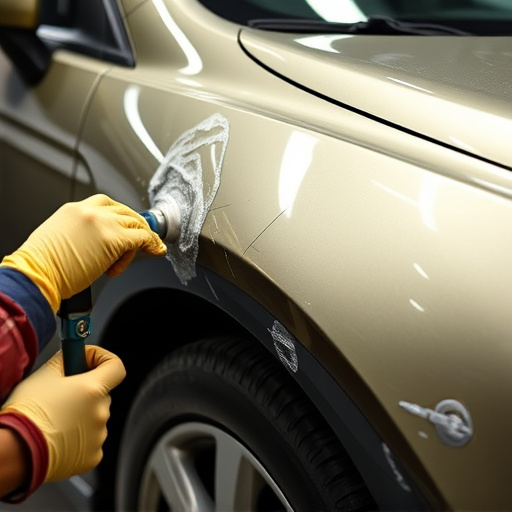
As electric cars continue to gain popularity, addressing unique challenges associated with their body repair becomes increasingly crucial in 2025. Unlike conventional vehicles, electric cars have distinct components and systems that require specialized knowledge and tools for effective collision repair or vehicle body repair. The complexity of their battery packs, motor systems, and high-voltage components necessitates the development of advanced training programs for automotive repair professionals.
Moreover, with the evolving technology in electric car manufacturing, traditional repair methods may not always be applicable. This demands a shift towards more sophisticated techniques and equipment for accurate and safe electric car body repair. As the number of these vehicles on the road grows, ensuring that collision repair shops are equipped to handle their unique needs will be essential to maintaining safety standards and minimizing downtime for owners.
The Future of Sustainable Mobility: Continuity and Innovation in Electric Car Body Repair
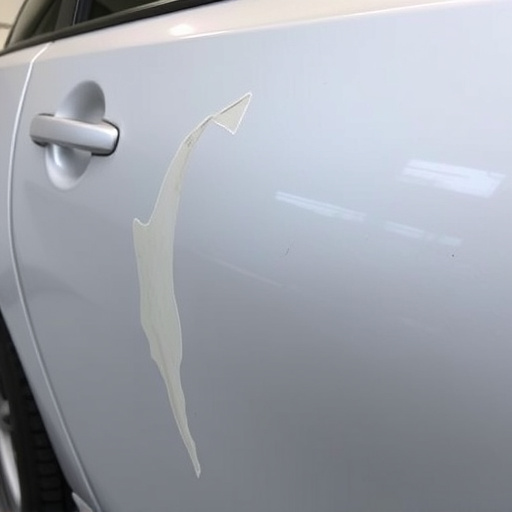
The future of sustainable mobility is not just about transitioning to electric vehicles (EVs), but ensuring their longevity and environmental impact over time. Electric car body repair plays a pivotal role in this narrative, bridging the gap between innovation and tradition. As we move towards 2025 and beyond, the demand for eco-friendly transportation continues to surge, solidifying the importance of advanced yet sustainable repair methods.
In response, the automotive industry is witnessing a harmonious blend of continuity and innovation in electric car body repair. Traditional auto body restoration techniques are being adapted to cater to EV-specific challenges, while new technologies like paintless dent repair are gaining traction. This evolution ensures that repairs remain efficient, cost-effective, and environmentally friendly, aligning with the sustainability goals of both consumers and manufacturers alike.
Despite the rapid advancement of electric vehicle (EV) technology, the need for skilled electric car body repair will remain paramount in 2025 and beyond. As the world shifts towards sustainable mobility, the unique challenges presented by EV repairs, such as specialized training requirements and new repair techniques, must be met head-on. The future of electric car body repair lies in a balance between embracing innovative solutions and maintaining the art of traditional craftsmanship to ensure the longevity and safety of these vehicles on our roads.
